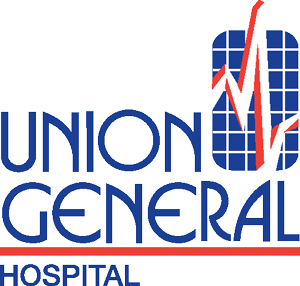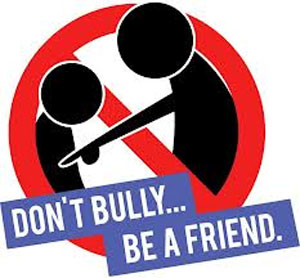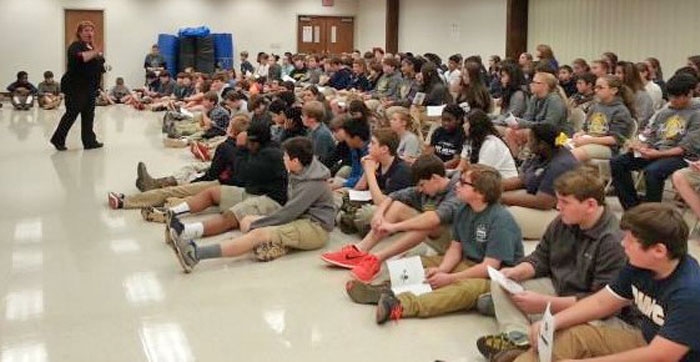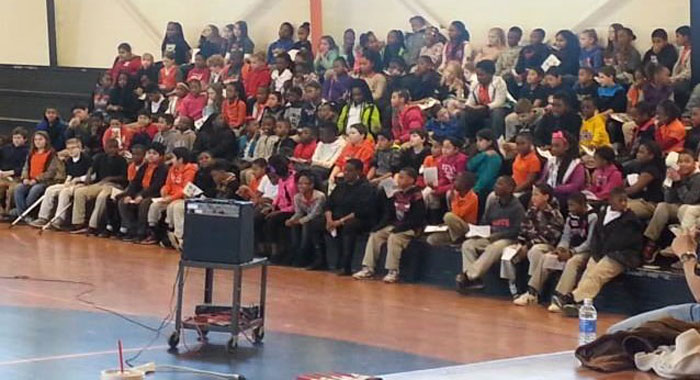Together We Can Be Bully Free
- Need: Union Parish, a rural county in Louisiana, continues to experience elevated rates of youth suicide, bullying, mental health challenges, and risk behaviors, as confirmed by a 2024 Community Health Needs Assessment (CHNA).
- Intervention: Union General Hospital, a Critical Access Hospital, started a program to educate students grade 4 through 12 on the negative effects of bullying, to foster positive social behavior, and to provide mental health support through school-based interventions.
- Results: Over 3,500 students have learned how to recognize, report, and respond to bullying. The program's integration with broader community health priorities has strengthened mental health, reduced suicide attempts, and improved awareness of youth risk behaviors.
Description
A 2024 Community Health Needs Assessment (CHNA) by Union General Hospital (UGH) reaffirmed mental health, youth behavior, substance use, and bullying as top community health concerns in Union Parish, Louisiana. Suicide remains the second leading cause of death for Louisianans ages 10 to 24. Depression and anxiety affect 45% of surveyed residents, with bullying, parental neglect, and early sexual activity among the leading contributors to poor child health.

In 2014, 12 youth suicide cases were reported in Union Parish. Union General Hospital was averaging 9 teen suicide attempts per month. The suicide of a local fifth-grade bullying victim led to the creation of Together We Can Be Bully Free as part of the hospital's Drug and Suicide Prevention Program. Initially targeting elementary students, it has expanded to cover grades 4 through 12.

Through three annual school-based sessions, parents, teachers, and students learn about bullying prevention, mental health, and suicide prevention. The program addresses physical, emotional, and cyberbullying as well as substance use and peer pressure.
Together We Can Be Bully-Free operates in partnership with Union General Hospital, the Union Parish Sheriff's Office, Crime Stoppers, and the Union Parish School District. Participating schools include D'Arbonne Woods Charter School, Farmerville Elementary School, and Downsville Community Charter School.

This program was also featured in RHIhub's Rural Monitor article, Together We Can Be Bully Free: CAH and Law Enforcement Address Peer Victimization through School-Based Program.
Services offered
Together We Can Be Bully Free holds 3 sessions per year at participating schools. Topics covered include:
- Types of bullying and their effects on mental and physical health
- Understanding why youth engage in bullying behaviors
- Roles of bystanders and active participants
- Positive peer modeling and social behaviors
- The role of social media in escalating bullying
- Student-led solutions and classroom action plans
- Suicide prevention and emotional health strategies
- Personal testimonies from youth who have overcome bullying
The program also offers individual referrals to local mental health providers when needed.
Mental health integration
UGH offers mental health and suicide risk assessments. Increased mental health sessions are provided through Together We Can Be Bully Free, addressing bullying, peer pressure, cyberbullying, emotional trauma, and parental neglect. Union General Hospital has recently completed the construction of the Union General Rural Health Clinic, expanding services to include Counseling Services for all ages and offering direct referrals for additional support.
Community collaboration
Partnerships include Union Parish Sheriff's Office, Crime Stoppers, Union Parish School District, The Center for Children and Families/Brokers of Hope, LSU AgCenter, Union Parish Library, Town of Farmerville, Union Museum of History and Art, local healthcare providers, D.A.R.T., and the Food Bank of Northeast Louisiana.
The program actively participates in health fairs, school activities, and community events to promote awareness, recruit participants, and engage families.
Results
- Over 3,500 students have participated
- Bullying reports to the Union Parish Sheriff's Office have decreased
- Suicide attempts have decreased
- Five resource officers have been assigned to partnering schools to mediate and prevent bullying
- Program integration with It's a Girl Thing: Making Proud Choices has enhanced emotional health, bullying prevention, and youth leadership development
Awards and recognition
- 2014 Outstanding Rural Health Program of the Year from Louisiana Rural Health Association
- 2015 “Program of Promise” by Jackson Healthcare's National Hospital Charitable Services Awards

Challenges
Initial school hesitancy has evolved into full support as administrators better understand the importance of addressing bullying honestly. The program continues to advocate for open conversations about suicide, bullying, and mental health.
Replication
- Collaborate with diverse partners who share an interest in anti-bullying efforts
- Use age-appropriate, culturally-informed content
- Engage students through peer demonstrations, testimonies, and interactive videos
- Encourage non-judgmental, private reflection and provide one-on-one time with program staff and school counselors
- Educate about the root causes of bullying and create opportunities for emotional healing
Due to the growth of Together We Can Be Bully Free and It's a Girl Thing: Making Proud Choices, UGH now employs a full-time Community Outreach/Educator Marketing Assistant to support ongoing expansion, recruitment, and community engagement.
Contact Information
Claudia Wade, Program DirectorTogether We Can Be Bully Free
318.368.7075
cwade@uniongen.org
Topics
Abuse and violence
· Children and youth
· Mental health
· Schools
· Suicide and suicide prevention
States served
Louisiana
Date added
April 17, 2017
Suggested citation: Rural Health Information Hub, 2025 . Together We Can Be Bully Free [online]. Rural Health Information Hub. Available at: https://www.ruralhealthinfo.org/project-examples/950 [Accessed 16 February 2026]
Please contact the models and innovations contact directly for the most complete and current information about this program. Summaries of models and innovations are provided by RHIhub for your convenience. The programs described are not endorsed by RHIhub or by the Federal Office of Rural Health Policy. Each rural community should consider whether a particular project or approach is a good match for their community’s needs and capacity. While it is sometimes possible to adapt program components to match your resources, keep in mind that changes to the program design may impact results.
